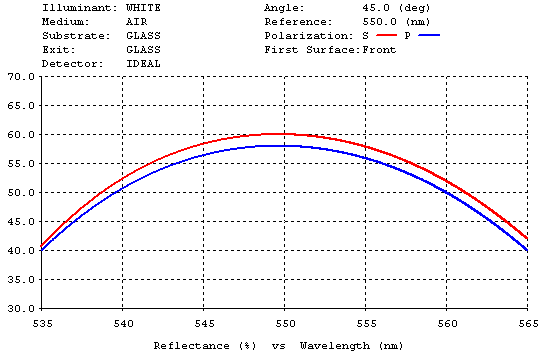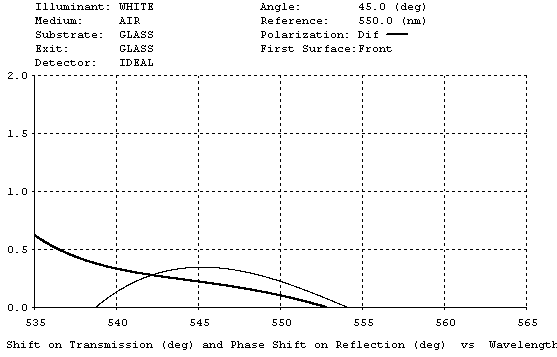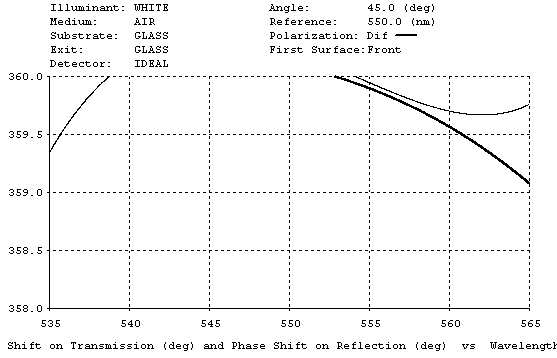Nonpolarizing Beamsplitter for OIC Contest
The challenge is to design a 45° beamsplitter on a glass (index 1.52) substrate. The incident and exit mediums are air. Only the front side of the substrate needs a coating; we can assume the back side has a perfect AR coating. For a wavelength range as wide as possible, and centered at 550 nm, the beamsplitter design has the following performance requirements:
- | Rs - Rp | ≤ 2%
- 40% ≤ Rs ≤ 60%
- 40% ≤ Rp ≤ 60%
- | δRs - δRp | ≤ 1° (difference of p and s reflected phase, Abeles convention)
- | δTs - δTp | ≤ 1° (difference of p and s transmitted phase)
The above requirements can be translated into seven continuous optimization targets. We give the first five targets more weight than the last two phase targets because it is best to meet the reflectance targets before worrying about phase. An important decision is the selection of the three coating materials. There are a total of 35 combinations of seven materials. Experience suggests that the three indices should be as widely separated as possible. Three good possibilities are the sets (1.38, 1.65, 2.35), (1.38, 1.8, 2.35), and (1.38, 1.65, 2.2).
Some experimenting finds that the indices (1.38, 1.65, 2.2) appear to work best, giving widest possible bandwidth of about 30 nm: 535 to 565 nm. As the bandwidth is increased, it becomes more difficult to keep both the reflectance and the phase differences within their required ranges.
In all of our designs, we start with a single thin layer and use TFCalc's needle/tunneling optimization to design the beamsplitter from "scratch". The plots below show the performance. Note that the phase differences are split across the last two plots.


